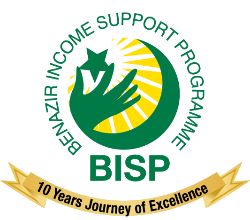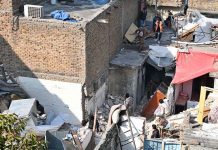By Bashir Khan
ISLAMABAD: Chairperson Benazir Income Support Programme (BISP), Senator Rubina Khalid reaffirmed the programme’s commitment to “working with provinces on skill development, income generation, and social inclusion for a more resilient Pakistan”, stressing that unity is the cornerstone of social protection.
She emphasized the need to build trust through provincial engagement, link the National Socio-Economic Registry (NSER) for timely climate shock response, and foster collaborative initiatives for long-term sustainability.
The chairperson BISP was speaking at a national consultative session on“National Integrated Social Protection: Aligning Data & Systems” held here Monday. The session was organized by BISP in collaboration with the World Bank and UK International Development.
The session aimed to promote coordination, strengthen data-sharing protocols, and ensure secure interoperability between federal and provincial social protection stakeholders.
It brought together senior representatives from federal and provincial governments, social protection authorities, development partners, and technical experts to deliberate on integrating social protection systems, ensuring secure data flows, and enhancing the use of NSER for targeted welfare planning.
In her keynote address, Senator Rubina Khalid recalled the vision of Shaheed Mohtarma Benazir Bhutto: “Charon Sobo ki Zanjeer, Benazir Benazir”, symbolizing national cohesion and unity.
She underscored the need to engage all provinces in data-sharing discussions, address cybersecurity risks, and build trust among partners.
She further highlighted the critical role of linking NSER with other programmes to ensure timely support, particularly during climate shocks.
Welcoming the participants, Secretary BISP Amer Ali Ahmad described BISP as not only the premier social protection programme in Pakistan but also the “center of gravity” for the country’s social protection system.
He noted that BISP has gained global recognition and stressed the need to identify and eliminate duplication, leverage each other’s strengths, and develop synergies to maximize benefits for beneficiaries through the exchange of ideas and shared learning.
Director General (NSER) Dr. Asim Ijaz delivered a detailed presentation on BISP’s current data-sharing protocols with provinces and partner organizations.
He outlined ongoing collaboration mechanisms, provided insights into the datasets currently exchanged, and presented planned improvements in data access and integration. Representatives from the Punjab Social Protection Authority (PSPA), Sindh Social Protection Authority (SSPA), Social Protection & Development Unit (SPDU) Khyber Pakhtunkhwa, Planning & Development Department Balochistan, Social Welfare Department Azad Jammu & Kashmir, and Social Welfare Department Gilgit-Baltistan also shared their ongoing interventions, the role of NSER data in their targeting processes, current interoperability mechanisms, and challenges faced along with proposed solutions.
Vice Chairperson PSPA, Ms. Jehan Ara Watto, emphasized that the future of social protection lies in mutual collaboration and data exchange for the welfare of marginalized communities. She assured full cooperation from her institution in advancing this shared mission.
Development partners contributed valuable technical expertise to the discussion.
The National Centre for Education and Research in Technology (NCERT) presented on data security protocols, the World Bank introduced cloud-based data sharing frameworks, GiZ discussed adaptive social protection systems, and the Asian Development Bank (ADB) showcased integrated MIS models and two-way data sharing practices.
The session concluded with group discussions that resulted in a joint statement by all stakeholders.
They reaffirmed their commitment to strengthening interoperability between provincial and federal social protection systems, ensuring compliance with global cybersecurity standards, enhancing trust and transparency in data sharing, and exploring innovative models for integrated and adaptive social protection.




